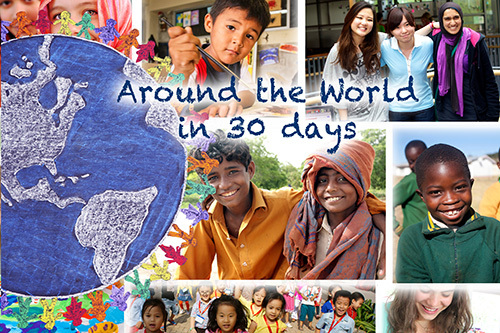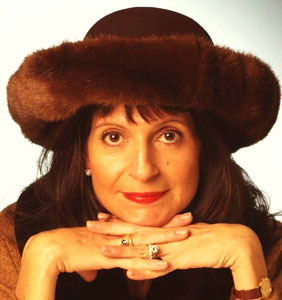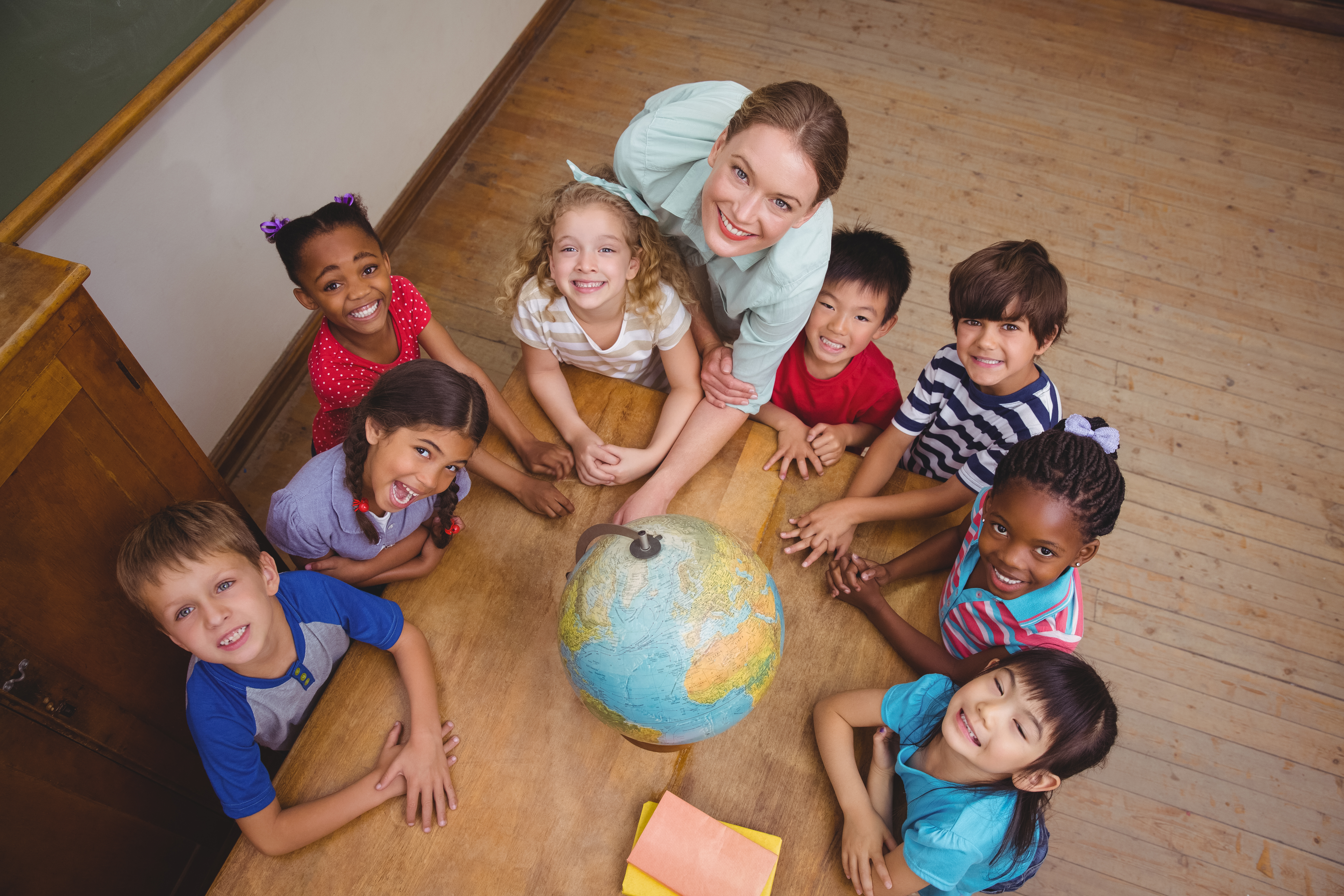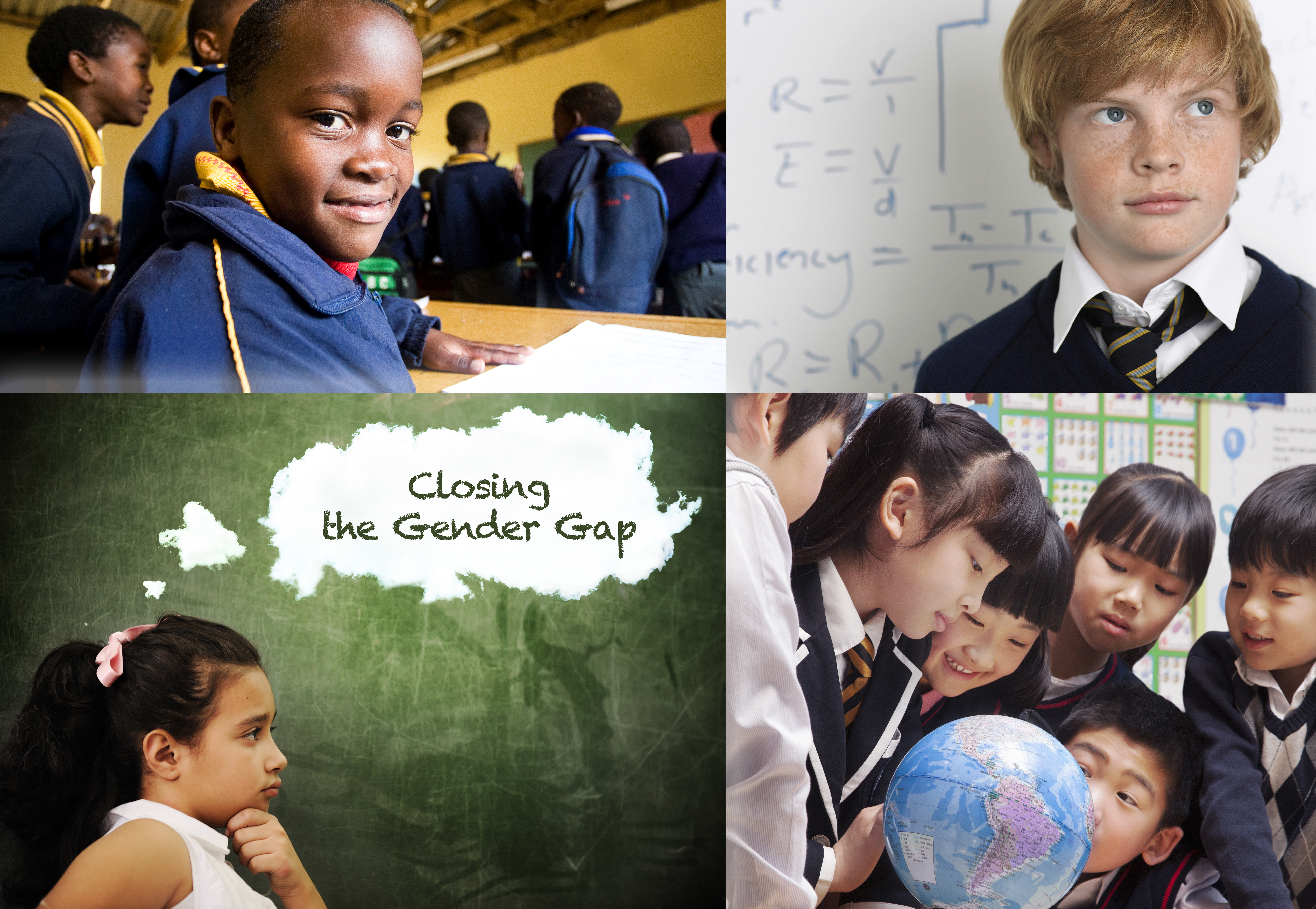
From Education Fast Forward’s 17th debate in partnership with UNESCO at Mobile Learning Week in Paris, to our Twitter Chat on Multiculturalism in partnership with Edmodo, to interviewing the Top 10 finalists for the Varkey Foundation’s Global Teacher Prize, to exploring cutting edge technology that’s changing music education, to welcoming the voices of new experts to our global teacher blogging team, it was a stimulating and revealing month around the world.
“Innovation and Quality: Two Sides of the Same Coin?” was the title of Education Fast Forward’s 17th global debate at Mobile Learning Week in Paris in partnership with UNESCO. The debate brought together thought leaders from all over the globe to discuss the latest news and views on the impact of mobile technology in life-long learning. “Technology has the potential to unlock new approaches to assessment that will change what and how we teach,” said Jim Wynn, who noted that “the current curriculum shape and form that we see around the world with subjects taught in silos has to change.” Lord Jim Knight noted that the most convincing way he has seen technology utilized in education is flipped learning. “This technique should see more teachers pushing learning content to pupils in advance of class, to then allow face to face time at school to be used more effectively to embed the learning,” he stated.
When our present and our future is inevitably a highly interconnected world, competencies like global openness, empathy, respect, adaptability and critical-thinking are no longer merely ‘helpful’ to students, they are essential for them to flourish. “Teaching in a Global Landscape – Mindful Multiculturalism in Today’s Classroom” was the timely topic of our Twitter Chat hosted by Edmodo and ourselves which, not surprisingly, was trending on Twitter during the event. Featured guests Dr. William Gaudelli, Jessica Kehayes, and Dana Mortenson joined teachers and twitter users from all over the world to share practices in fostering global competency. Key insights into the future of global education were offered, including one from Jessica, Executive Director at the Asia Society: “The more we can promote understanding and perspective-taking, and encourage explanation of your own thinking while respectfully hearing others, the more opportunity there is for new thinking to emerge and communities to be strengthened. Building relationships with the community can and should start early, promoting all members of our society as important voices, including our youngest.”
Narrowed down from 8,000 nominations in 148 countries around the world, the Varkey Foundation’s Global Teacher Prize 2016 came up with a list of ten finalists. Just prior to Pope Francis announcing Hanan Al Haroub the winner I had the honor to interview all the finalists. Aqeela Asifi, Ayub Mohamud, Colin Hegarty, Hanan Al Haroub, Joe Fatheree, Kazuya Takahashi, Michael Soskil, Richard Johnson, Maarit Rossi, and Robin Chaurasiya shared their perspectives with me on how to make teaching a more prestigious career. Hanan Al Haroub insisted that “…teachers are the real power in this world. They are the only ones who can change societies, the ones who can create productive and active generations…” Therefore, teachers should be treated with more respect and dignity. We should “provide salaries and conditions to entice bright, innovative/creative minds and lift the profile of the profession…” suggested Richard Johnson. The future of education may be grim in places where teachers are not valued as an integral part of a prosperous society. As Mike Soskil said, “Only when we treat teachers as the professionals that they are will we see the success that we desire in our schools.”
Craig Swann is the Founder and Chief Imagination Officer of Looplabs. Looplabs is a free, collaborative, cloud-based music studio that lets anyone, regardless of technical skills or ability, easily make, share, and discover music. While Looplabs is exciting for both amateur producers and music enthusiasts alike, it is also making waves in the education world. “Allowing a teacher to set up a project and then let every student interact and build off that one piece, but yet having them all connected at the same time, provides powerful ways to learn by doing it together.” Because Looplabs is designed to help beginners make music – “it allows for easy, intuitive ways to explore composition, to test, and try things…” – it makes for a wonderful tool to allow youth to discover their creative abilities. And, importantly for educators: it’s free!
This month, The Global Search for Education welcomed an expanded panel of experts as the new Top Global Teacher Bloggers. For their introductory collaboration we asked them a controversial yet essential question in global education: “What are the best examples you have seen of teachers closing the gender gap in education?” Maarti Rossi explained that, “It is important that the schools deliberately mix the genders in the classrooms…” It’s also essential to engender self-respect and the self-confidence in every student, regardless of gender. Miriam Mason-Sesay summarized this practice wonderfully: “The idea is to catch them young to teach them their value and make sure that negative messages never get a chance to take hold.” Warren Sparrow identified the difficulties that many young boys have in education: “A strange phenomenon in South Africa is that there are more boys than girls in primary school, but this gets reversed in high school and tertiary institutions.” Richard Wells suggested that this can be remedied by “flipped teaching or project-based learning. This is connected to boys needing to be doing rather receiving. Most boys need to be active learners.”
Our thanks to all our friends and supporters around the world.
(All pictures are courtesy of CMRubinWorld)


Join me and globally renowned thought leaders including Sir Michael Barber (UK), Dr. Michael Block (U.S.), Dr. Leon Botstein (U.S.), Professor Clay Christensen (U.S.), Dr. Linda Darling-Hammond (U.S.), Dr. MadhavChavan (India), Professor Michael Fullan (Canada), Professor Howard Gardner (U.S.), Professor Andy Hargreaves (U.S.), Professor Yvonne Hellman (The Netherlands), Professor Kristin Helstad (Norway), Jean Hendrickson (U.S.), Professor Rose Hipkins (New Zealand), Professor Cornelia Hoogland (Canada), Honourable Jeff Johnson (Canada), Mme. Chantal Kaufmann (Belgium), Dr. EijaKauppinen (Finland), State Secretary TapioKosunen (Finland), Professor Dominique Lafontaine (Belgium), Professor Hugh Lauder (UK), Lord Ken Macdonald (UK), Professor Geoff Masters (Australia), Professor Barry McGaw (Australia), Shiv Nadar (India), Professor R. Natarajan (India), Dr. Pak Tee Ng (Singapore), Dr. Denise Pope (US), Sridhar Rajagopalan (India), Dr. Diane Ravitch (U.S.), Richard Wilson Riley (U.S.), Sir Ken Robinson (UK), Professor Pasi Sahlberg (Finland), Professor Manabu Sato (Japan), Andreas Schleicher (PISA, OECD), Dr. Anthony Seldon (UK), Dr. David Shaffer (U.S.), Dr. Kirsten Sivesind (Norway), Chancellor Stephen Spahn (U.S.), Yves Theze (LyceeFrancais U.S.), Professor Charles Ungerleider (Canada), Professor Tony Wagner (U.S.), Sir David Watson (UK), Professor Dylan Wiliam (UK), Dr. Mark Wormald (UK), Professor Theo Wubbels (The Netherlands), Professor Michael Young (UK), and Professor Minxuan Zhang (China) as they explore the big picture education questions that all nations face today.
The Global Search for Education Community Page
C. M. Rubin is the author of two widely read online series for which she received a 2011 Upton Sinclair award, “The Global Search for Education” and “How Will We Read?” She is also the author of three bestselling books, including The Real Alice in Wonderland, is the publisher of CMRubinWorld, and is a Disruptor Foundation Fellow.
Follow C. M. Rubin on Twitter: www.twitter.com/@cmrubinworld





Recent Comments